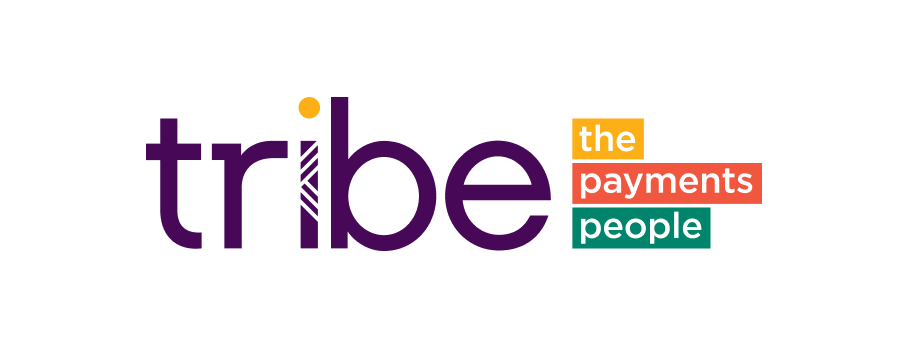Published
- 07:00 am

- 70% of fintechs are using AI today, and the technology is predicted to dominate the market by 2025
- 90% of fintechs use APIs and they are currently the most widely used emerging technology
- “Fintech Five by Five” explores five core technologies that will have the biggest impact on the sector in the next five years
Tribe Payments, a payment technology company, today reveals that 67% of fintechs believe AI is the technology that will have the biggest impact on the sector over the next five years. The finding, part of the new “Fintech Five by Five'' report, examines which five emerging technologies are having the biggest impact today, tomorrow and on the long term future, and exactly what changes we can expect to see as a result. The report is based on a survey of 80 fintech executives and features contributions from leading technology providers including Canonical, FintechOS, Microsoft, R3 and TrueLayer.
Key findings from the report:
Emerging technology use today
- 90% of fintechs use APIs and they are the most widely used emerging technology today, primarily driven by the success of Open Banking.
- Remarkably, 70% of fintechs are already using AI despite it generally being perceived as a future technology.
- 20% of fintechs are using blockchain technology, demonstrating that it has moved beyond the hype and is now being implemented more widely.
- Low-code is being used by 16% of fintechs, as firms seek to increase the pace of development and refocus developer time on high value projects.
- 10% of fintechs are using edge computing, a surprisingly high adoption rate given the technology is less hyped than the others.
Impact of emerging technologies tomorrow and in the next five years
Most impact in the next year | Most impact in next five years |
|
|
|
|
|
|
|
|
|
|
- AI may still be seen by many as a “future technology”, forever several years away, but fintechs are implementing AI today, and the reputation as all hype and no substance is no longer deserved.
- Blockchain will be used more and more in smart contracts, and for privacy and confidentiality. Its success doesn’t hinge on crypto.
- APIs are already a mainstream technology, driven mostly by regulation in financial services. They will continue to be mainstream and will make integration of services simple.
- Low-code is the dark horse of these technologies. To make the most of it, there will have to be an attitude shift in how fintechs approach development.
- Edge computing is still to gain the buzz that it should, perhaps as it’s a little bit “inside baseball”—the implications are mainly understood by those closest to the technology.
“Fintech may be seen by some as a revolution made possible by technology, but it’s just as much a shift of attitude—an ongoing change where openness to, and understanding of new technology is vital,” said Alex Reddish, Chief Commercial Officer at Tribe Payments. “This report not only offers insight into the technologies from those closest to them, it suggests next steps for fintechs who don’t want to be left behind.”
The report “Fintech Five by Five”: Five technologies and their impact over the next five years can be downloaded here.
Related News
- 09:00 am

Engineered by SETL, Verafide allows organisations, networks and individual users to simply and securely issue, hold, verify and share digital ID and credentials
Verafide, a verifiable credentials technology provider for issuers, holders and verifiers of digital credentials and ID, today announced the launch of their platform on the SETL enterprise blockchain. The open source solution enables any community, network or organisation to set up and maintain a digital credentials ecosystem.
Verafide offers a comprehensive tool set to issue, hold and verify digital credentials – a personal, secure digital certificate that proves a fact, a right or a qualification – combined with an integrated payment solution to allow organisations to commercialise their issuance. Use cases include a variety of scenarios from KYC and legal documentation for financial services firms, to proof of identity or age, to digital credentials to evidence of vaccinations or professional qualifications.
The computer code Verafide developed to issue, present and verify the digital credentials has been open -sourced in compliance with Government best-practice policy for public sector use. The high performance SETL blockchain maintains issuer's identities and public keys as well as other information that allows verification of the digital certificates.
The Covid-19 pandemic has significantly accelerated the need for and development of verifiable credentials. As governments across the world debate vaccination passports, the NHS has created a digital credential to prove an individual’s vaccination status. Currently only available in the NHS app, Verafide sees this as one of many digital certificates that citizens will want to hold in their wallets.
In February of this year, the UK Government announced its ‘digital identity and attributes trust framework’ to further the development of a national digital ID. Its next iteration is due by the end of the summer, with legislation being considered later in the year. Elsewhere, in June the European Union announced proposals for its own “trusted and secure digital ID”, inviting Member States to establish a “common toolbox” by September 2022.
Verafide’s aim is to bring together digital identity and verified credentials into one digital wallet which puts the owner in full control of what happens with their personal information. Portable certificates can be passed between the holder and verifier like a digital passport, without the need to share details of interactions or transactions with the original ‘issuer’ of IDs, so personal information remains protected. What’s more, the enterprise version benefits from a built-in payments functionality that allows organisations or companies to commercialise and scale the issuance of certifications, from ID cards to driving licenses or travel documentation.
Joshua Daniel, Chief Engineer, Verafide, said: "Last summer we won a competition launched by Innovate UK, the UK's innovation agency, and were awarded funding to realise our ambition to solve the issues around existing verifiable credentials data. Since then, we have been working tirelessly to build digital trust and resolve the inefficiencies in how credentials are created, shared and verified. Our aim is to work with natural trust infrastructures where issuers and holders of credentials will benefit from digitisation.”
Daniel added: “Covid has put the need for digital IDs firmly into the mainstream. We wanted to use our funding and technology not only commercially, but also to ‘give something back’ and help our country return to some sort of normality as soon as possible. This is why we have made our solution completely open source and one of our first projects is to work on digital credentials for Covid testing.”
Verafide is enjoying early interest and adoption and is already working with:
- The Linux Foundation Public Health and the Covid 19 Credentials Initiative - both developed to help public health authorities combat COVID-19 and future epidemics
- Pyser Testing - a UKAS and CQC accredited testing provider that carries out PCR and lateral flow tests. The company is an approved UK provider of Fit to Fly, Day 2, Day 5 and Day 8 testing services.
- The Modular Open Source Identity Platform (MOSIP), an open source platform for Foundational ID systems developed in India , with deployments in countries such as the Philippines and Morocco, and backed by the Bill and Melinda Gates Foundation.
Anthony Culligan, Verafide Advisor and Chief Engineer at SETL, said: “We have received a lot of interest from business and government organisations. Secure, digital credentials are not just a novelty making the administrative parts of our lives easier, they are now absolutely vital to getting people back to work, back to travelling - be that for work or family reasons, all whilst protecting their privacy."
Culligan added: “As with the evolution of money from paper to digital, identity and credentials will follow. We are proud to be at the forefront of innovation for verifiable credentials and actively involved in developing common industry standards. With a multitude of digital wallets and credentials offerings expected to come to market, ensuring interoperability across systems and the ability to integrate into existing infrastructures is more important than ever.”
Verafide's core functionality is open -source. Verafide offers an open -source SDK for the developer community, and is compliant with the global W3C Verifiable Credentials Standard. Its enterprise solution is delivered as SaaS and includes a ‘payment-for-credential’ functionality. The Verafide App can be downloaded from the iTunes and Google app stores.
Culligan concluded: “We are delighted to have created the core software for Verafide and excited to be one of the key shareholders in this new venture.”
Verafide is engineered by SETL and hosted on SETL’s enterprise blockchain technology. SETL has a proven track record in delivering distributed ledger technology (DLT) based solutions for financial markets, asset management and payments. SETL’s DLT technology powers regulated financial market infrastructures that are active and operational, including the Central Securities Depository ID2S and the fund distribution platform IZNES. Most recently, SETL has successfully completed the world’s first Central Bank Digital Currency (CBDC) live fund transaction in collaboration with Banque de France, using the SETL blockchain that powers the IZNES fund distribution platform.
Related News
- 06:00 am

Fashion tech start-up closes Series C to consolidate leadership positions across Europe
Perwyn, a family-backed private equity and growth capital investor, is pleased to have led a $30m Series C funding round in Lookiero, the online personal shopping service.
Founded in 2015 by Oier Urrutia, Lookiero combines the expertise of personal shoppers and a deep understanding of its customers with in-house recommendation algorithms to provide a fully personalized style experience to customers. By employing a customer’s style profile, Lookiero delivers a carefully curated selection of five pieces of clothing and accessories to fit a customer’s individual size, style, and preferences. Customers then decide which items to keep or return (at no additional cost), enabling Lookiero’s technology and personal shoppers to learn through feedback and improve future selections.
With a team of over 400 people, Lookiero currently has over three million registered users and has grown revenue by over 50% in the first half of 2021 year-on-year. Furthermore, Lookiero has increased the number of items that customers keep in each box by nearly 50% in the last 3 years, improving margins significantly.
Since its Series B funding round in 2019, Lookiero has taken significant steps towards further improving its service and customer experience. The company significantly broadened its stock and conducted a full rebrand in 2020, redefining the company mission and visual identity. Most recently, the company launched new mobile apps with new features and games that allow the company to learn more about its customers.
Technology enabled services is a core specialism for Perwyn and it has several other market-leading companies in its investment portfolio. Lookiero’s existing investors MMC Ventures, All Iron Ventures and Bonsai Partners followed on in the round.
Perwyn was advised by Squire Patton Boggs (legal), Omnicommerce (financial), Grant Thornton (tax) and Diligize International (technology). Lookiero was advised by Cuatrecasas.
Oier Urrutia, Founder and CEO of Lookiero, said that:
“This funding round will allow us to continue our expansion in Europe, with the launch in Germany this year. Furthermore, we are working on exciting new projects that will enhance our current proposition of offering new ways for our clients to define their style and discover the clothes they love in a personalised and thoughtful way. We are excited to partner with Perwyn on our next phase of growth.”
Andrew Wynn, Founder and Managing Partner of Perwyn, added:
“Lookiero is set for its next phase of international build-out in Germany, Western Europe’s biggest market. In harnessing technological developments and combining them with fresh thinking and a clear business strategy, Oier and his team have demonstrated their skill in creating a business that continuously improves and builds on its effectiveness from both a consumer facing and revenue generating point of view.”
Related News

Shaun Puckrin
Chief Product Officer at Global Processing Services
As the global economy starts to re-open, crucial sectors such as retail and hospitality are showing positive signs of growth. see more
- 06:00 am

Leading AI-powered credit decision platform provider, Scienaptic, announced that American Cycle Finance (ACF) has successfully deployed its platform. The implementation empowers ACF to assist its partner motorcycle dealers in selling more vehicles to customers with limited or no credit history through sharper, AI-driven credit decisions.
With a network of more than 450 motorcycle retailers across 24 states, ACF's program equips dealers with fast, easy application processing and loan servicing for their motorcycle sales transactions. With Scienaptic's AI-powered credit decisioning platform, ACF is positioned to offer enhanced, automated credit decisions to help increase credit availability for its customers.
“Deploying Scienaptic's AI-powered credit decisioning platform has resulted in significantly higher automation and credit approvals across portfolios. In one portfolio we are seeing 2X incremental approvals without any increase in risk,” said Ben Donnarumma, President of American Cycle Finance. “As we continue to use Scienaptic’s platform, we look forward to increased approvals and faster decisioning cycles for our customers.”
“ACF is enhancing the buying experience by helping its partners reach more customers, overcoming existing or past credit challenges and get a second chance to finance the motorcycle of their dreams,” said Pankaj Jain, President of Scienaptic. “With Scienaptic’s AI-powered credit decisioning platform, ACF can offer more credit approvals to customers who previously experienced credit turndowns or declines, despite their credit score. We are pleased to help ACF get more motorcycle enthusiasts on the road.”
Related News
- 08:00 am

TIBCO Software Inc., a global leader in enterprise data, empowers its customers to connect, unify, and confidently predict business outcomes, solving the world’s most complex data-driven challenges. Today, TIBCO announced its recognition as an overall Leader in Vendor Credibility in Dresner Advisory Service’s 2021 Wisdom of Crowds® Business Intelligence Market Study, making this the fifth consecutive report naming TIBCO a Leader. In addition, TIBCO was cited "best in class" for robustness and sophistication of its technology, and was given a perfect recommendation score.
“This year’s Wisdom of Crowds market study shows game-changing improvements for TIBCO in all the survey measures, across the board. To once again be highlighted by Dresner as a Leader is validation for the work our teams do in delivering a compelling customer experience and fostering innovation within our partner network,” said Michael O’Connell, chief analytics officer, TIBCO. “Our customers clearly see tremendous value in our products and technologies, and in the breadth of our expertise to support their journey to sustainable innovation.”
In its 12th edition, The Wisdom of Crowds® Business Intelligence Market Study draws from a 33-criteria vendor performance measurement system evaluating 26 vendors' performance, market suitability, and capacity to deliver. The Dresner study includes input from thousands of users from companies big and small, from all functional areas and vertical markets worldwide. This year, Dresner cited TIBCO as above the overall sample and named it a Technology Leader in its Customer Experience Model and an Overall Leader in its Vendor Credibility Model.
TIBCO’s focus on delivering an all-encompassing Hyperconverged Analytics experience spearheads the industry's need to democratise real-time analytics, providing agile decision models needed by organisations looking to fast-track economic recovery. This is driven by visual data science workflows that make quick work of exploring structured, unstructured, and streaming data to pave the way for adaptable and relevant customer experiences.
“We see more organisations reliably and consistently creating relevant insights across the enterprise, setting the stage for closed-loop processes that ensure timely, concerted action,” said Howard Dresner, founder and chief research officer, Dresner Advisory Services. “We congratulate TIBCO on their strong performance in this year’s market evaluation.”
Learn more about TIBCO’s robust offerings here.
Related News
- 07:00 am

Leading UK RegTech specialist SmartSearch has warned the UK could be left behind in the fight against money laundering and financial fraud, if it fails to coordinate with the new agency being formed by the EU.
It has emerged that the European Commission will launch the Anti-Money Laundering Authority (AMLA) as part of a raft of measures contained in its action plan, set to be revealed on July 20.
The AMLA is a dedicated agency working independently of member states’ national authorities, giving it much greater power to identify and act upon significant money laundering threats.
It will also have new powers to fine businesses in breach of regulations up to ten per cent of turnover, and it will be looking at risks from non-EU countries such as the UK.
John Dobson, CEO at SmartSearch which operates both in the UK and the EU, said: “The formation of a dedicated resource to tackle the growing problem of money laundering, primarily through sectors such as the property market, is a positive step by the EU.
“Since the outbreak of the global pandemic we’ve seen organised criminal gangs in the UK taking advantage by exploiting loopholes in AML processes and using increasingly more sophisticated forged ID documents to get their dirty money through the laundering process.”
As part of the UK Budget announcement in March chancellor Rishi Sunak announced the formation of a new HMRC taskforce to tackle tax evasion and fraud, which is set to employ 1,000 extra investigators.
Dobson says the task force needs to work alongside agencies in other countries and make use of the latest technology to identify the source of the most significant money laundering threats.
He adds: “Of course, this is a global issue so it’s vital that the UK coordinates its response with the EU and other nations, as organised crime gangs won’t be concerned about political borders.
“Obviously as we are no longer part of the EU, this new authority will have no jurisdiction in the UK, but in order to be able to fight the threat of money laundering here in the UK most effectively, it’s vital that we coordinate and cooperate with the AMLA, otherwise risk getting left behind.”
For more information about anti-money laundering solutions in the UK, please visit www.smartsearch.com
Related News
- 09:00 am

Finzly, a fintech provider of modern banking applications for payments, foreign exchange, trade finance and digital account opening, today announced a new partnership with ICBA Bancard, the payments services subsidiary of The Independent Community Bankers of America (ICBA), to facilitate instant payments via Finzly’s Payment Galaxy, a payment hub for improved convenience, cash flow and efficiency for community banks and their customers. Finzly was a fintech participant in ICBA’s 2020 ThinkTECH Accelerator program.
“The rise in digital and contactless payments, fueled by the pandemic, has heighted demand for faster payments,” ICBA Bancard President and CEO Tina Giorgio said. “Through this collaboration, ICBA Bancard is helping community banks deliver payments when and where customers want while streamlining their payment processes for additional value and distinction in the market.”
Payment Galaxy enables the provision of existing payment services like ACH and wires, alongside the new instant payment rails, including The Clearinghouse’s RTP® and when available, FedNowSM using a single, core agnostic, interface.
Finzly's instant payment solution takes the complexity out of instant payments and can be up and running in as little as three months. The payments hub features:
- Preloaded connections to the Fed and The Clearing House for instant payments
- Built-in compliance features, powerful audit trails and meaningful dashboards
- Bulk payment service to pay in real-time or future date scheduling
- A secure system for payments and messages for fraud management
“We are very excited to partner with ICBA Bancard and are eager to see more community banks pursuing the road to innovation through smarter payments transformation,” Finzly Founder and CEO Booshan Rengachari said. “Finzly’s payments hub not only helps banks stay relevant in today’s fast-paced market, but also helps future-proof their payment infrastructure.”
Related News
- 07:00 am

he National Association of Minority Mortgage Bankers of America (NAMMBA) and Finastra have partnered to bring about positive change in the mortgage industry, meeting the needs of underserved communities and developing a more diverse mortgage workforce. As a Diamond Plus Partner to NAMMBA, Finastra will support the purpose-driven organization’s efforts to enrich and improve the situations of women and minorities who work in the real estate finance industry. This vision aligns with Finastra’s own commitment to Diversity, Equity and Inclusion in the financial services industry and the idea that finance can be a source of change for the good of society.
“We’re extremely excited to forge this long-term partnership with Finastra and welcome their support in pursuing our vision for the mortgage space,” said NAMMBA Founder/CEO Tony Thompson, CMB. “Over the next five years, NAMMBA will expand its mission to foster diversity and inclusion in other areas of financial services, such as retail banking and wealth management. As the largest pure-play software vendor serving the entire financial services industry, Finastra will be a meaningful partner in helping NAMMBA achieve this goal.”
The partnership will lead to a greater understanding of how technology can be leveraged to drive positive change in mortgage decisioning, from eliminating bias in lending to making funding accessible to communities in need. In addition to gaining access to the diverse and experienced talent pool of NAMMBA’s members, Finastra will have the opportunity to work with NAMMBA to provide training, education and career development resources to the real estate finance industry, and support sustainable home ownership in communities across the United States.
“Finastra believes that when technology and real-life challenges meet, the global community is presented with the opportunity to build a better tomorrow that tackles significant challenges around financial inclusion, fairness in financial decisions, and support for individuals and communities as they navigate through change,” said Puja Agrawal, Chief Operating Officer, Americas, Finastra. “We are proud to partner with NAMMBA in its mission to support women and minorities in the real estate finance industry, and in doing so, bring greater opportunities for all on the path to home ownership. Together we can redefine finance for good - driving meaningful change in the financial services industry and building a more equitable world for all.”
According to NAMMBA, over the next five years, 75 percent of all first-time home buyers will be women, millennials or people of color. Although there is concern across the industry about a stagnant or shrinking housing market, purchase mortgage opportunity is not only growing, it’s changing. According to NAMMBA’s most recent mortgage market forecast, the three largest diverse borrower groups (Asians, African-Americans, and Hispanics) generated more than $292 billion of purchase opportunity in 2020, which amounts to 24.2 percent of all purchase dollar opportunities. However, this borrower group faces systemic obstacles to realizing their goals of home ownership, which can be overcome through a mix of education, understanding, representation and technology.
Related News

Gaurav Chawla
Sales Engineer at InterSystems
The financial services sector has faced huge crises – everything from the 2008 financial crisis to natural disasters. see more









